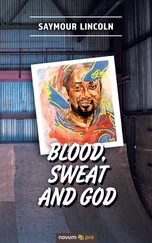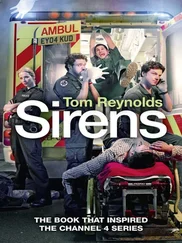1 ...6 7 8 10 11 12 ...16 In the past we’ve had people break into our ambulance station to steal radios from the cars parked there as well as steal the station’s TV. When you are working yourself into an early grave on a cold and wet night shift it makes you want to pack the whole job in.
Canary Wharf has a skating rink at the moment and my crewmate and I were sent there to attend to a ‘fall, head injury’.
‘Excellent,’ we thought, ‘a nice simple job—nothing complicated.’
We were met by a worried-looking ice rink worker who wobbled across the pavement on his skates to meet us.
‘We wouldn’t normally bother you guys, but we think it might be serious.’
Grabbing my bags I was led to a woman sitting in the changing area with two youngsters, both of whom were looking a little concerned.
‘Hello there. I’m with the ambulance, what seems to be the problem?’ I normally start with a version of this as a conversational opening gambit.
The patient replied, ‘Well, I had a bit of a fall—’ She paused. ‘I—’ She paused again. ‘Head…hit…migraine—’
She seemed to be having trouble finding the right words to use. I quickly examined her, and was happy that she hadn’t hurt her neck and the small lump on the back of her head didn’t look serious either. So why was she acting so strangely?
‘I get migraines,’ she told me. ‘I…lose…um…er…um…words, and I…eyes…eyes…go blind.’
This is a pretty rare presentation of migraines, but not unheard of.
We got her into the back of the ambulance and all my examinations there were normal. She was complaining of ‘losing her words’ (expressive dysphasia) and of going blind in her right eye. She didn’t seem too upset by this and had already taken her normal migraine medication, although I’m not sure how paracetamol and metoclopramide would help with these symptoms as I’m not an expert on migraine treatment although I know that triptans can sometimes be used.
Her symptoms started to get worse, she couldn’t find any of the words that she wanted to use, and so I needed to get a more thorough history from the two youngsters. They were her nephews and she had been treating them to a trip to London. Although young, they were both very mature and helpful and after some prompting from the patient (‘Laptop…look…laptop’) we found a patient information card in her purse. The card let us know that all the symptoms that she was experiencing were indeed part of the presentation of her migraine.
It was a short trip to the hospital, during which she started to make a slight recovery and we left her in the capable hands of the A&E nurses. Unfortunately for the patient, the hospital was extremely busy, so I’m guessing that she had to wait a little while for any treatment.
The three of them had come from Surrey, so they didn’t know the area well, although we were able to give them directions home from the hospital. We had chosen this one over another slightly closer so that it would be easier for them to get home after any treatment.
A day out in London turning into a trip to the hospital—it happens more often than you would think.
For the past five nights the majority of my patients have been sick with one or more of the following:
High temperature,
Runny nose,
Vomiting,
Night sweats,
Lethargy,
Cough,
‘Generally unwell’.
So there must be at least one highly infectious disease epidemic in the area. While you or I might want to curl up in bed with some Lemsip and paracetamol, it would seem that a large number of Newham’s population would rather sit for hours in an A&E waiting room.
Madness.
Which leads me to the point. Ambulance crews spend a lot of time around these infectious patients, who have often never been taught the good manners of putting their hand over their mouth when they cough.
So is it any wonder that I’ve got painful eyes, a streaming nose, a constant mild headache and a feeling that I’m suffering from a mild hangover.
But:
Ambulance crews mustn’t have more than three periods of sick leave in an 18-month period.
So I’m having to drag my potentially infectious body into work—where maybe I can infect some more people…
So in conclusion:
Send me nurses—pretty female ones with plenty of drugs.
Some patients with chronic lung disease need oxygen, and rather than keep them in hospital, these patients often have cylinders of oxygen delivered to them at their home.
Until recently it was the pharmacist who supplied these cylinders, but the government in its infinite wisdom has decided to privatise the supply of oxygen. This means more paperwork.
And now a patient has died, possibly because of a delay getting her oxygen delivered. It drives me crazy that I spend my time in my ambulance going to 23-year-old men with coughs, yet apparently no ambulance was called for this woman.
It all comes down to the government wishing to run the health service like a business.
I know that some people believe that the free market will constantly provide superior service to anything run by the government. Unfortunately healthcare isn’t a ‘market’ and this market view of the NHS leads towards some very silly initiatives. It’s why ‘failing’ hospitals get less money than ‘successful’ hospitals. Who would want to throw money into a failing business?
Why are hospitals so dirty? It’s because of the free-market contracting of cleaning to the cheapest supplier—regardless of the quality.
It’s also why, despite increasing numbers of patients, more calls, very few new staff and all the other reasons why we may not meet our government ORCON target this year, we’ll get less money to be spent on improving our service.
But what do I know—I’m a van driver not an economist.
The thing about wearing a uniform—it really changes your behaviour.
I’m guessing that a lot of you are aware of the Milgram experiment, where members of the public more willingly follow instructions if the giver is wearing a uniform or other symbol of authority. (Go to the internet for a more complete explanation. If you’ve never heard of this experiment, it and the Stanford prison experiment make scary reading.)
So when I am wearing my uniform I am more confident and can order people around. The police, firefighters and members of the public tend to do what I tell them if there is someone sick around. Obviously I only use these powers for the force of good, but without my uniform I am a much shyer person.
I noticed this when I went to a recent gathering of internet people. When I arrived I knew one person there, and once I’d stopped talking to her I became an instant wallflower.
But there is a flip side to wearing an ambulance uniform, you also become more passive.
Out of uniform, if I was in the street and some drunk tried to hit me—I’d punch them on the nose. If I was verbally abused—I’d soon be in their face shouting and ranting along with the best of them.
Yes, I know three paragraphs before I said I was a wallflower, but this is in a social situation. When my temper is roused it is a terrible thing to behold.
But in uniform I’ll gently restrain the drunk trying to hit me and I’ll ignore any verbal abuse that is thrown at me. Unfortunately the anger that I feel is then turned inward, which I am guessing is not a healthy thing to do.
I wonder if it is the uniform, or the risk of having a complaint put in about me, that turns me into such a wimp. It might just be that I spend so much time trying to keep patients calm, that I’m feeling very mellow when people abuse me.
Читать дальше












